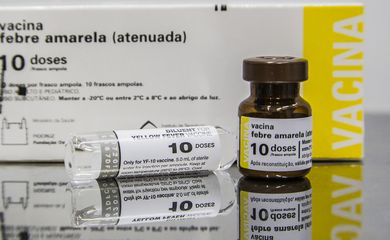Yellow fever vaccine production to double in Brazil, says Health Minister

From June onwards, 4 million monthly doses of the yellow fever vaccine are expected to enter the market, reported Brazilian Health Minister Ricardo Barros. The doses are going to add up to 4 million monthly doses already produced, doubling the number available.

Barros inaugurated this Thursday (Jan. 25), in Rio de Janeiro, the final vaccine production line, the result of a partnership between Brazilian Immunobiological Technology Institute (Bio-Manguinhos) and pharmaceutical company Libbs. The Ministry of Health is awaiting approval from Brazilian Health Regulatory Agency (Anvisa) to start the commercialization of the doses.
"The factory is already producing the vaccine and receiving inspection tours from Anvisa. We have made a few fixes that were requested and, at the end of March, there is an inspection slated to authorize the production, validate the blueprint according to Anvisa's standards. If all goes as expected, in June we will be selling the doses", he explained.
The yellow fever vaccine currently available in Brazil is produced at the Bio-Manguinhos laboratory, a unit of the public research institute Oswaldo Cruz Foundation.
According to the minister, part of the surplus production will be destined to the strategical inventory kept by the World Health Organization (WHO), of 6 million doses. "They can make varying requests, but we usually export around one million doses per year", he said.
Barros informed, however, that the Ministry of Health does not rule out abandoning the fractional dose strategy once the production has an increase.
Brazilian regions, including the states of São Paulo and Minas Gerais, are facing a yellow fever outbreak. The population is being immunized with fractional doses of the vaccine, effective against the disease for a eight-year period.
Translated by Mariana Branco


